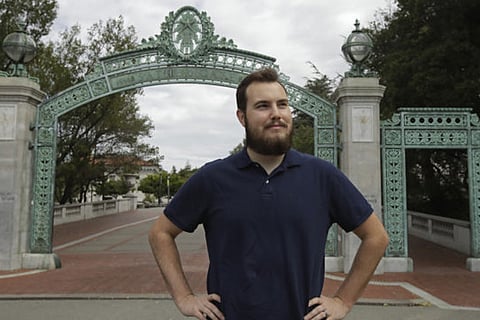

Chennai
The 28-year-old won a full scholarship to the University of California-Berkeley and, on Monday, will become the first in his family to graduate from college. “I’m supposed to be doing great,” he said.
Instead, he feels powerless and panicked, with a political science degree that seems worthless. He has a 7-month-old baby and his wife, a United Airlines flight attendant, fears losing her job. In the past several weeks, he has applied for about 35 jobs, all over the country. He’s also considering the military. “Unfortunately, they always need people,” he said. “And the benefits are so good.”
Mere months ago, the graduates of the Class of 2020 seemed all but assured of success. The economy was booming. The stock market had closed the year strong. The unemployment rate, on the decline for years, had dropped to a 50-year low of 3.5 per cent in February. Jobs outnumbered applicants, and fears of a recession had faded.
Then came the pandemic, shattering the economy. Last month, more than 20.5 million jobs vanished as the unemployment rate soared to 14.7 per cent -- the worst since the Great Depression. The high hopes of graduates crashed as corporations slashed budgets and rescinded offers of jobs and internships.
For working-class students who defied the odds to get a college education, it’s hard to be optimistic. There’s a sense of an unending crisis, with loans due and family members laid off. These graduates will be competing not just with experienced workers but with those in another Class of 2020 — high school graduates who aren’t college-bound or have put their dreams on hold to join the job hunt, in some cases to help newly unemployed parents.
Others are opting for a 2-year junior college instead of a 4-year programme or taking a gap year or have decided it’s not worth paying tuition for schooling that may be conducted only online. In California’s agricultural Central Valley, the county of Merced has six high schools with about 2,500 graduating seniors, many from low-income or immigrant families. Typically, about 40 per cent head to college and the rest go straight to jobs in mechanics, construction, agriculture and hospitality -- industries that, for now, are wiped out or stagnant.
“The future looks very grim,” Merced’s assistant superintendent Constantino Aguilar said. “Where do these students go? A lot of doors have been closed. We’re trying to plan for our students’ futures and there is nothing out there for them.” Still, some high school grads are determined to proceed with their college plans despite the economic chaos.
Mireya Benavides, 17, had considered a community college to save money, but instead chose the University of Texas-San Antonio. She knows it will be a financial squeeze. Her single mother, a school custodian, is the sole support for her and three siblings and was out of work part of this spring. Benavides hopes a work-study programme, and maybe eventual scholarships and loans, along with financial help from her mother, will be enough to make ends meet.
“If I don’t go to school, where would I be,” she asked. “Who would I become? I want to have a future. I just want to point myself in the right direction and move forward.” So does 22-year-old DJ Brooks, who finds himself in an uneasy limbo. Just months ago, he thought he thought he’d be welcoming family for a June graduation celebration at Carleton College in Minnesota as the first in his family to earn a degree. He’d worked two jobs while in school, helping his mother pay her bills. He figured he would have a job lined up, likely as a counsellor, having earned a psychology degree. Instead, he’s navigating what he calls a “sea of unexpectedness.”
Associated Press
Visit news.dtnext.in to explore our interactive epaper!
Download the DT Next app for more exciting features!
Click here for iOS
Click here for Android